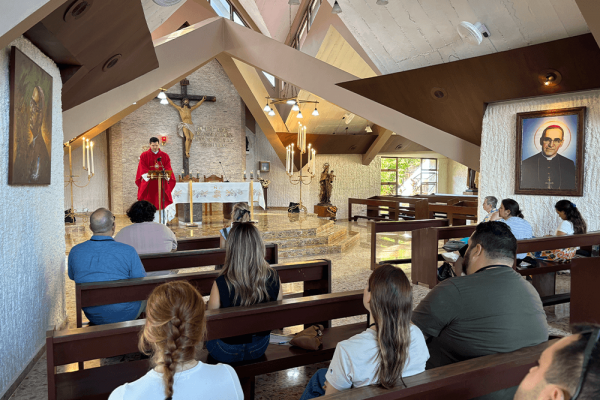Every morning, I drive my two sons, ages 11 and 13, to school. Normally these rides are mostly quiet as I listen to podcasts, and they watch something on their iPads. But this February, I told my sons we were starting a new tradition: Taking turns naming a figure of Black history and sharing why we believe that person was significant. To my surprise, my sons’ initial reticence quickly turned to enthusiasm. So far, we’ve talked about Louis Armstrong, Jesse Owens, Sojourner Truth, Thurgood Marshall, Rosa Parks, and Carter G. Woodson — the leader of the Association for the Study of Negro Life and History who established the second week of February to be “Negro History Week” to counterbalance the ongoing erasure of Black contributions in the U.S.
I’m grateful that my sons have plenty of ways to learn about Black history: My oldest son is reading the youth edition of Ibram X. Kendi’s book Stamped from the Beginning for school – a title some schools in Florida and South Carolina have banned. My family attends Alfred Street Baptist Church, where Black history is celebrated both during and beyond the month of February. This past summer, my sons participated in a mini Freedom School run by the Children’s Defense Fund. But I fear that when it comes to knowing Black history — and its role in the wider history of the U.S. — the chasm between my sons’ experience and that of other kids is only growing wider.
But instead of honoring the sacred call to remember, this nation sometimes seems hell-bent on trying to forget. We’ve seen this manifest in a moral panic around the supposed teaching of “critical race theory” in K-12 public schools or the backlash against diversity, equity and inclusion initiatives in higher education. According to Education Week, at least 18 states have instituted bans or restrictions on teaching topics related to race or gender. It may take years to fully grasp how these bans will set back our goal of a more just and multiracial democracy, but we already know there’s a climate of uncertainty and fear among many teachers in states like Florida and Texas who are now unsure what aspects of Black history will run afoul of the new restrictions.
Counter to what its bad-faith critics allege, teaching Black history isn’t about making people feel guilty. As I’ve written before, the whitewashing of U.S. history — like what’s happening in schools and universities around the country — leaves our nation vulnerable to repeat the sins of the past and creates a distorted view of our present challenges. So yes, we should teach kids about the period of white Southern backlash to Reconstruction after the Civil War, both so they understand a pivotal moment in our nation’s history and so they can spot a historical pattern in which racial progress has so often been met with periods of regress — a pattern that still repeats today.
Yet we also teach Black history to celebrate and inspire: The beauty and diversity of Black history has too often been flattened into stories of dehumanization and criminalization – stories that ignore the beauty and diversity of Black history and culture. Kids also need to learn about people like Gwendolyn Brooks, the first Black author to win a Pulitzer Prize; Charles Hamilton Houston, the first black editor of Harvard Law Review; Ruth Simmons, the first Black woman to be president of an Ivy League university; George Washington Carver, an agriculturalist and inventor; Alvin Ailey, a brilliant choreographer who founded an influential Black dance company; Shirley Chisholm, the first Black woman to be elected to the U.S. Congress; and so many more – people whose stories show what it means to be trailblazers and reach the very heights of achievement in their field. And we also teach kids about the people who helped our nation live up to its promise of “liberty and justice for all,” both so they can celebrate the resilience of those who came before and so they can be inspired to carry that project forward in their own life. Teaching Black history is not just about strengthening our democracy or fixing injustices; it’s also about affirming and celebrating an essential part of our nation’s culture and identity.
As another way to practice the sacred act of remembering during Black History Month, my wife and I took our sons to see Origin, a new film directed by Ava DuVernay that brings to life Isabel Wilkerson’s bestselling book Caste: The Origins of Our Discontents. The film weaves together the personal tragedy Wilkerson overcame while writing about the connective tissue between the oppression of Jews in Nazi Germany, Dalits in India, and Blacks through slavery and Jim Crow segregation in the U.S. Each system relied upon dehumanization, separation of people (including in marriage), and applying pernicious tests of purity. Wilkerson examines the hierarchy of human value through the lens of caste, and her book compares America to an “old house” with a caste system “that is as central to its operation as are the studs and joists that we cannot see in the physical buildings we call home.”
After the film was over, I pulled my sons in close and reminded them that they are made in the very image of God and that nothing could take that inestimable worth and beauty away from them. Echoing in my head were the lyrics Eugene Kiing sings in “Pretty Brown Skin” by Maverick City Music: “One thing’s for sure / You’re made in the image of God […] Remember who you are and whose you are (shooting star) / Don’t forget that part / Know that you belong just as you are / With your pretty brown skin.”
Got something to say about what you're reading? We value your feedback!







